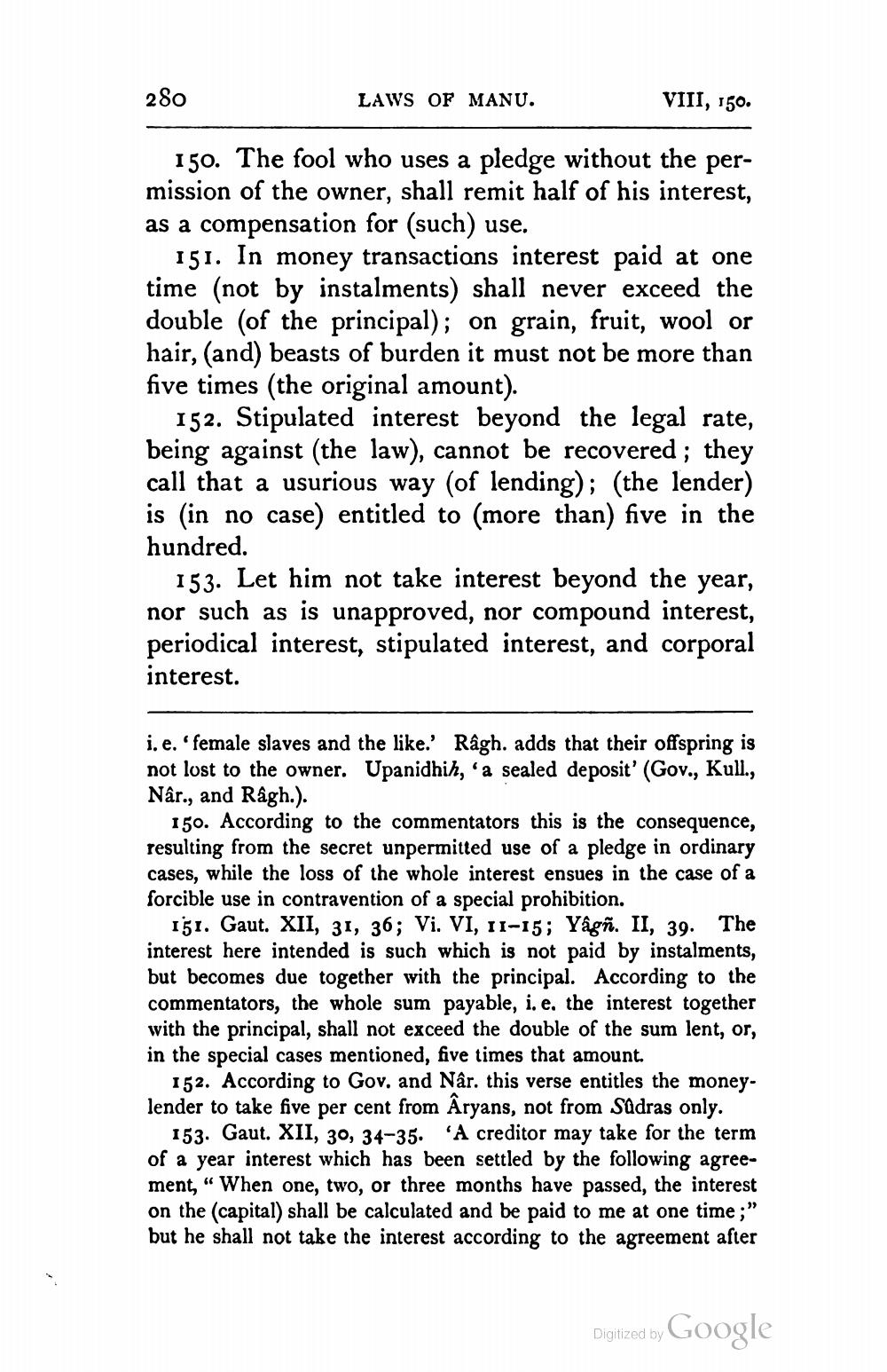________________
280
LAWS OF MANU.
VIII, 150.
150. The fool who uses a pledge without the permission of the owner, shall remit half of his interest, as a compensation for (such) use.
151. In money transactions interest paid at one time (not by instalments) shall never exceed the double (of the principal); on grain, fruit, wool or hair, (and) beasts of burden it must not be more than five times (the original amount).
152. Stipulated interest beyond the legal rate, being against (the law), cannot be recovered; they call that a usurious way (of lending); (the lender) is (in no case) entitled to (more than) five in the hundred.
153. Let him not take interest beyond the year, nor such as is unapproved, nor compound interest, periodical interest, stipulated interest, and corporal interest.
i. e. 'female slaves and the like.' Râgh. adds that their offspring is not lost to the owner. Upanidhih, 'a sealed deposit' (Gov., Kull., Nâr., and Râgh.).
150. According to the commentators this is the consequence, resulting from the secret unpermitted use of a pledge in ordinary cases, while the loss of the whole interest ensues in the case of a forcible use in contravention of a special prohibition.
151. Gaut. XII, 31, 36; Vi. VI, 11-15; Yâgñ. II, 39. The interest here intended is such which is not paid by instalments, but becomes due together with the principal. According to the commentators, the whole sum payable, i. e. the interest together with the principal, shall not exceed the double of the sum lent, or, in the special cases mentioned, five times that amount.
152. According to Gov. and Nâr. this verse entitles the moneylender to take five per cent from Aryans, not from Sûdras only.
153. Gaut. XII, 30, 34-35. 'A creditor may take for the term of a year interest which has been settled by the following agreement, "When one, two, or three months have passed, the interest on the (capital) shall be calculated and be paid to me at one time;" but he shall not take the interest according to the agreement after
Digitized by
Google




